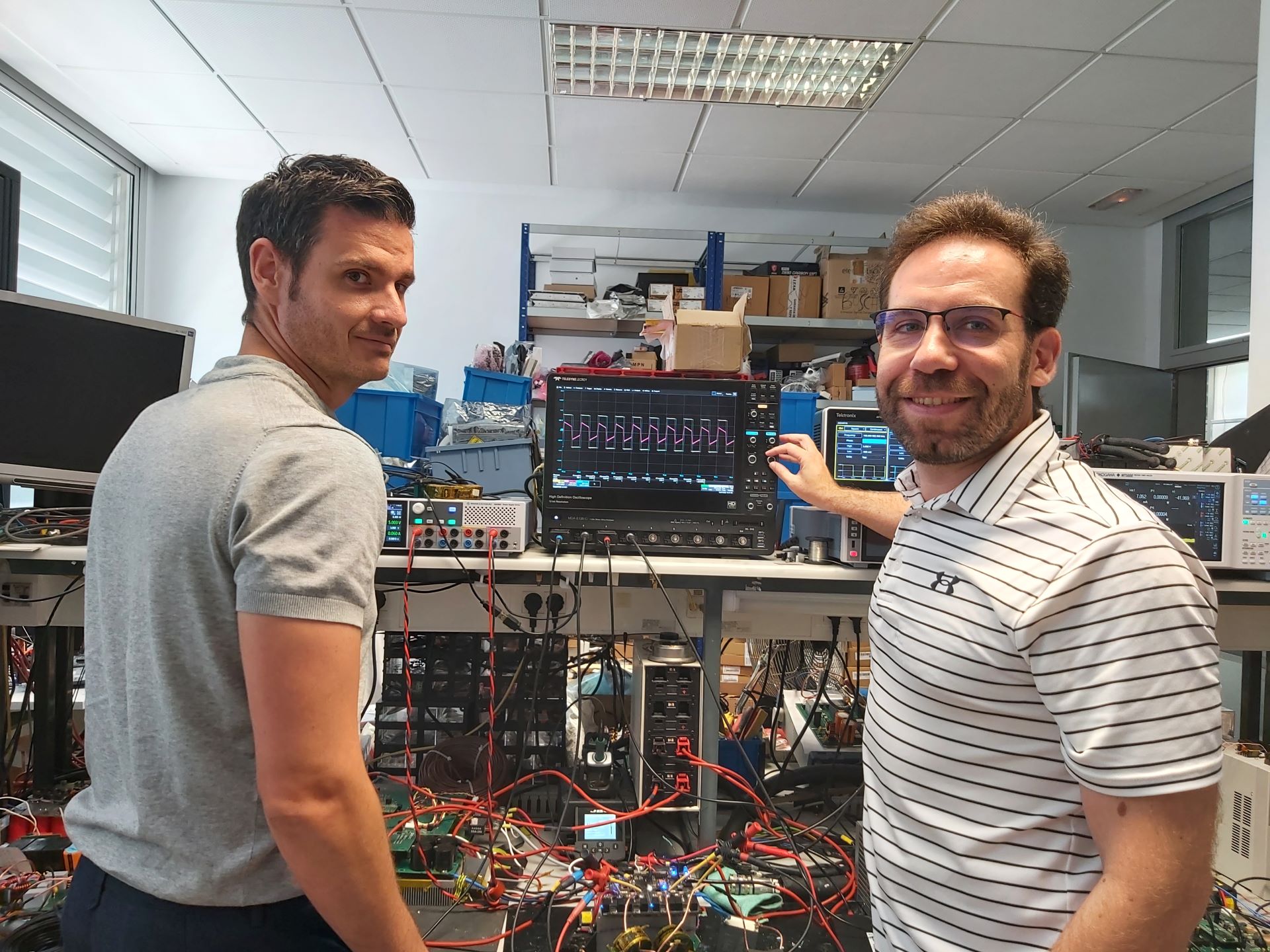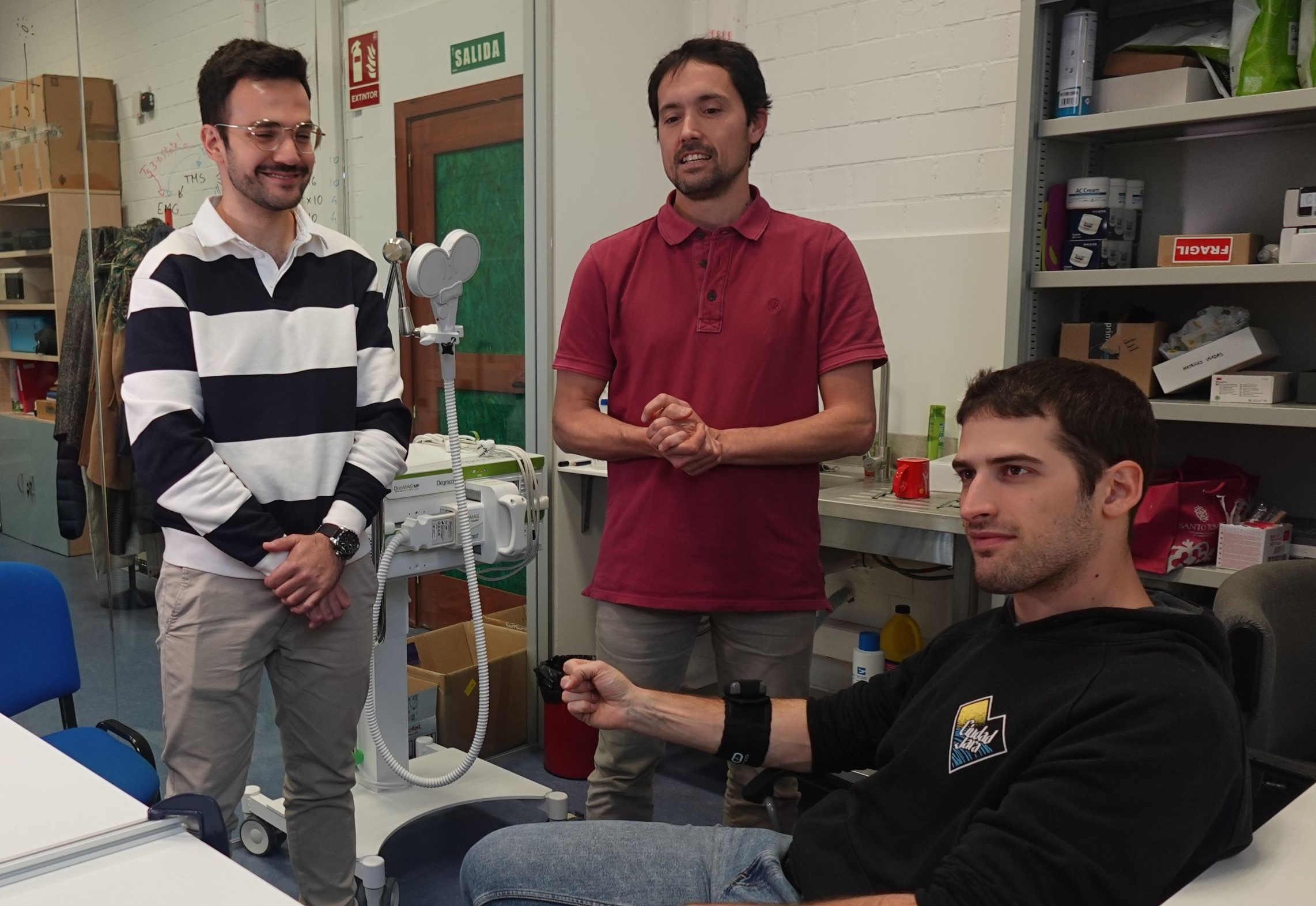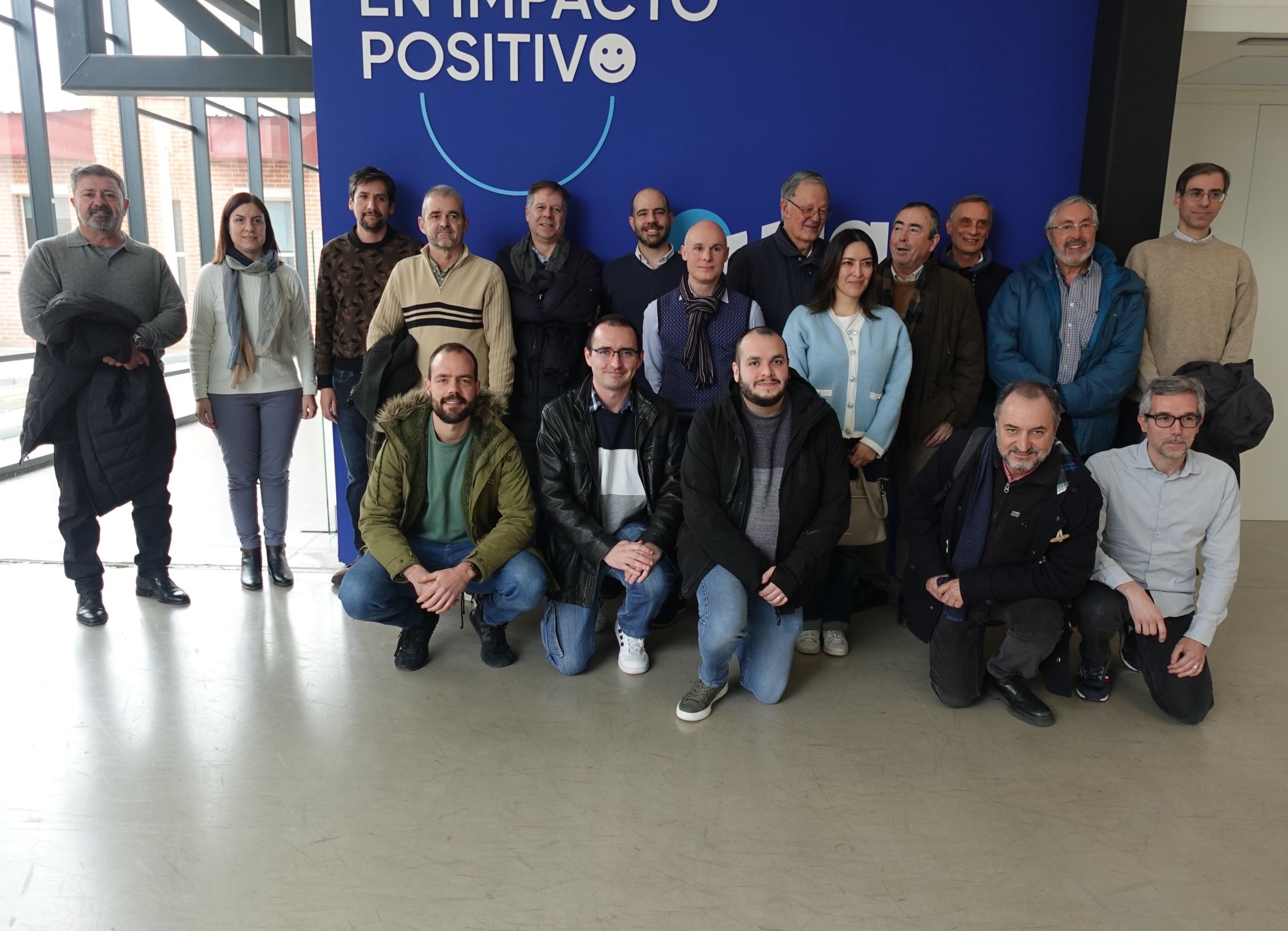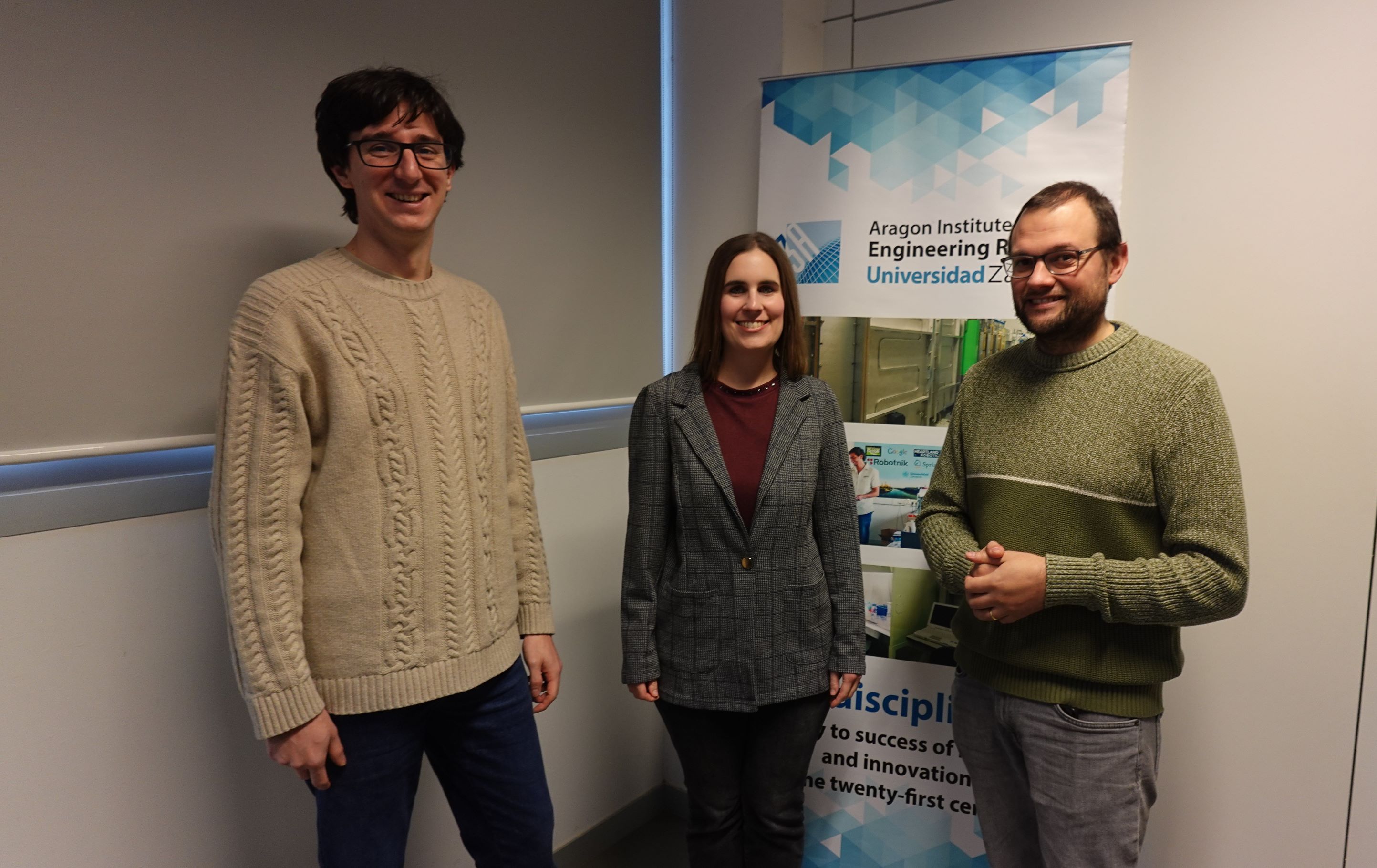
The Power Electronics and Microelectronics Group (GEPM) of the I3A (Aragon Institute for Engineering Research) has been researching electric vehicles for years, contributing to the design of cars that have better performance, are cheaper and more efficient, have less environmental impact and are less expensive for those who buy them. Their latest contribution, an article on electric vehicle chargers in which they propose a new circuit that is much more versatile and efficient than those that currently exist, has been awarded as the best article at the International Congress on Power Electronics, held in Estonia, authored by Óscar Lucía and Héctor Sarnago together with researchers from the Zurich University of Technology.
Its charger proposal allows single-phase and three-phase grids to work without the need for additional components, resulting in a more efficient and cost-effective system, which means cheaper electric cars with shorter charging times.
This line of research on electric vehicles, in which Héctor Sarnago and Óscar Lucía are working, is financed by a project from the call for Strategic Projects Oriented towards Ecological Transition and Digital Transition.
At the moment, they already have a working prototype and are developing a second prototype with improved performance, while, in parallel, they have industrial collaborations with different companies in the sector that work with some of the world's leading car manufacturers. Now, their objective is to "transfer this progress to industry, which is what we have done over the years and what we want to continue doing because we believe that research has to be transferred because that is where society as a whole benefits", explains Héctor Sarnago.
Research in this field is closely linked to innovation, with a lot of research activity and the latest technologies are being used to find the best answer, from batteries to new semiconductor devices for more efficient circuits. "It is serving as a catalyst so that certain technologies that were in an incipient state of maturity have increased the volume of production due to their introduction in electric vehicles and are beginning to be interesting for other applications", says Óscar Lucía.
Nevertheless, in general, society in some countries is still sceptical about electric cars. According to the GEPM researchers, the first reason is usually the cost, although the medium and high ranges are already cheaper, but the lower range is still more expensive than a conventional car, although the performance is superior in many aspects, "the battery is expensive, the electronics is new and that also makes it more expensive, but everything is changing very quickly, as the technology matures the costs go down and there is also aid from the Administration", recalls Héctor Sarnago.
Another reason is the charging infrastructure, which in Spain "we are very late in terms of charging points and, above all, in terms of quality, it can happen that you get to a place and it doesn't work", says Lucía.
The third aspect pointed out by the University of Zaragoza researchers is the lack of information, people's lack of knowledge about how an electric car works. "There are a lot of hoaxes about charging times, about batteries, that you can't drive long distances, a lot of misinformation has been generated, even in sectors related to the automotive world," they say.
They are new technologies and ignorance generates rejection, "but I don't know anyone who has bought an electric car and regretted it because they have countless advantages, the first being environmental and, nowadays, range is not a problem, with an average vehicle you can travel more than 400 kilometres; They have an electric motor that is infinitely simpler than a combustion engine, they don't have oil, there are no spark plugs, they don't need anything for diesel emissions, they generate torque from low revs and that makes them very safe in overtaking and merging manoeuvres", explains Óscar Lucía.
Three key areas of the GEMP
The aim of power electronics is to process electrical energy as efficiently as possible, which is very important both from an environmental and cost point of view, especially nowadays when more than 70% of electrical energy is processed with power electronic converters. The GEPM research group specialises in this and applies it in three lines of work: electric vehicles, induction heating systems, where they work mainly with the BSH group, and biomedical applications, in electroporation systems for cancer treatment and in systems for disinfecting prostheses by induction heating.
………………………………………………
Link to the article:
Referencia: H. Sarnago, O. Lucia, D. Menzi, and J. W. Kolar, "Single-/three-phase bidirectional EV on-board charger featuring full power/voltage range and a cost-effective implementation," in IEEE CPE/Powereng, Tallin, 2023.
Podcast, Óscar Lucía sobre el vehículo eléctrico. Escuchar audio




